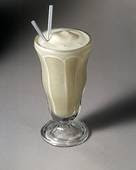Alfalfa
I love all of the old time stories of how natural herbal remedies effectively helped so many people with common issues we deal with today. They had the patience and understanding of healing time, and allowing the body to do what it is so miraculously designed to do. They knew that using herbs would most often give the body what it needs to heal and strengthen itself.
Interestingly enough we have all of the same natural healing choices today, with one added exception. Today we are constantly told that natural remedies don’t work and that in order to get better we need the altered, super strengthened, time-released chemical, and don’t forget addicting, prescription drugs is the only answer to what ails us. We have become impatient with nature and the bodies needed healing time. Below is one of those old time stories of a Grandmother on my husbands side, along with her take and feelings of the herb Alfalfa.
“During the depression years Pa was laid off from his job working at the Mill. It was probably for the best because he coughed a lot and his chest constantly hurt. He was weak and didn’t have much of an appetite. Since he was no longer employed, there was no money to go to a doctor. He was pretty sure, like many others, he had tuberculosis. Ma was afraid he was going to die.
Pa’s old maid sister, Aunt Afton, came to live with us. She said it wasn’t just the smoke and fumes making Pa sick it was him not eating right, fresh fruits and vegetable and the like. Next day she came in with a flour sack full of fresh alfalfa hay. She put on a big pot of water and brewed him up some alfalfa tea to drink. Now Pa didn’t cotton much to the idea of drinking tea instead of his coffee, but he did it anyway. After a bit his cough and aches were gone and his appetite returned. Pa was on the mend and was now able to go out and look for work.”
Important Facts About Alfalfa
· Alfalfa is one of the best sources of calcium there is, and is so easy for the body to assimilate.
· It contains about 8,000 I.U.s of vitamin A per on hundred grams, and that’s a lot.
· It is also rich in vitamin E, which makes it good for the heart and good for the muscles.
· It is an excellent source of vitamin K, ranking close to spinach, kale or carrot tops.
· Alfalfa is also a good source of B6 which helps the nerves and brain.
· And surprisingly enough Alfalfa is loaded with protein. Here are a few comparisons from a health periodical on protein: Alfalfa is 18.9% protein, milk is only 3.3%, whole wheat is 13.8%, and beef is 16.5%.
· Alfalfa is a tremendous alkalizer, which makes it beneficial to the kidneys and bladder, and to those who suffer from indigestion.
· It has the eight essential enzymes that are necessary for digestion.
· It is also rich in potassium, magnesium, iron, calcium, phosphorous, chlorine, silicon, sulfur, sodium and many other minerals!
Aunt Afton said, “if you could have just one herb to improve your over all health, it would be alfalfa”.














